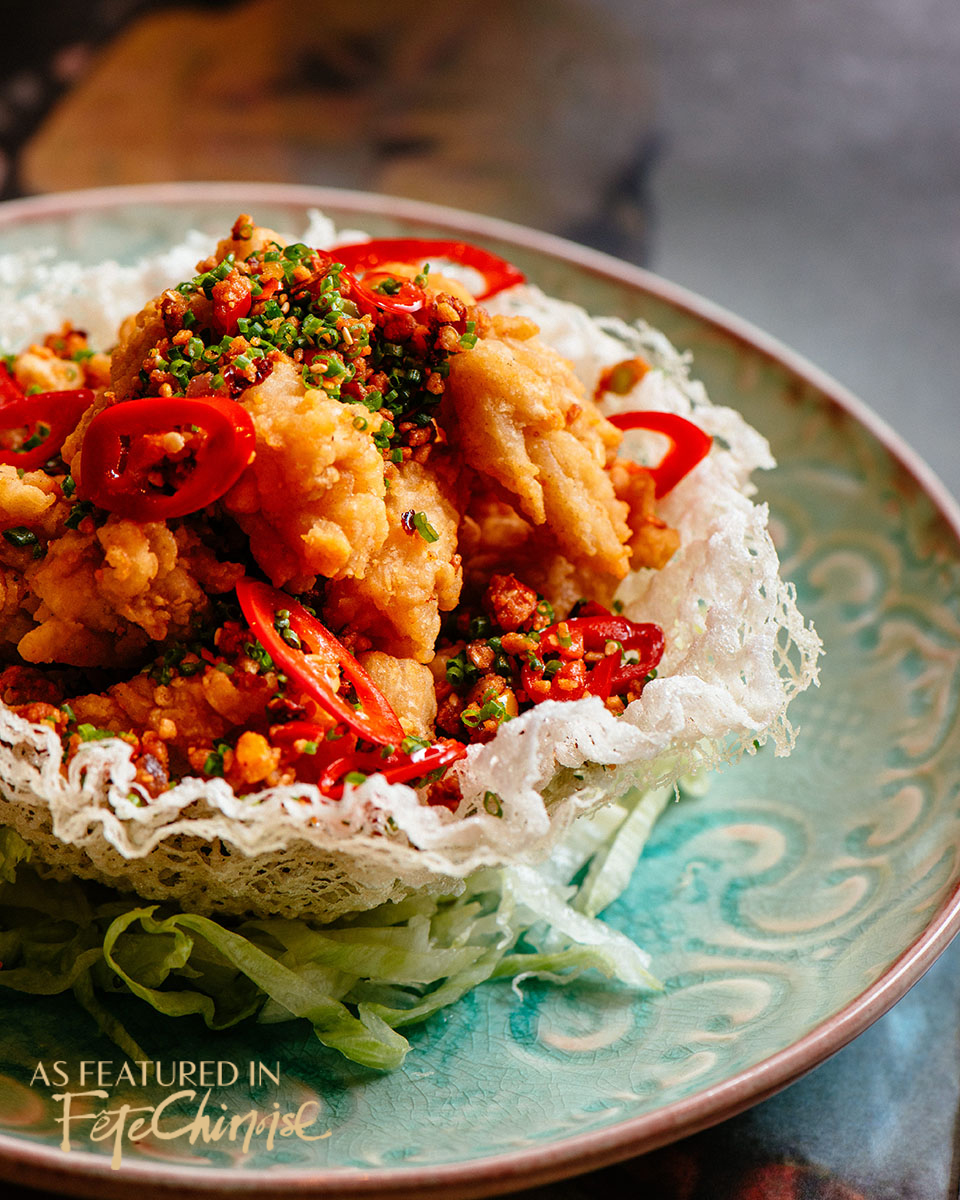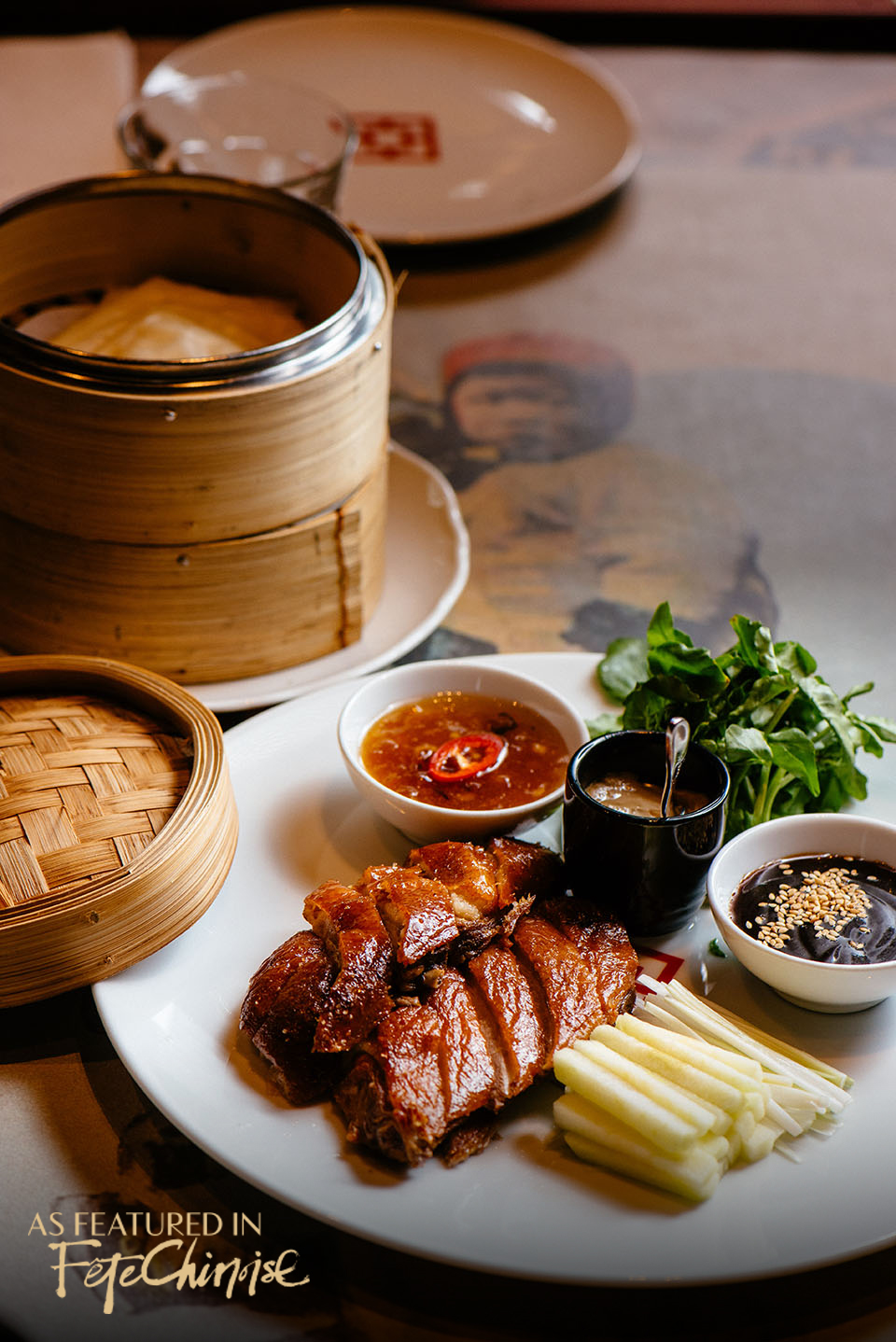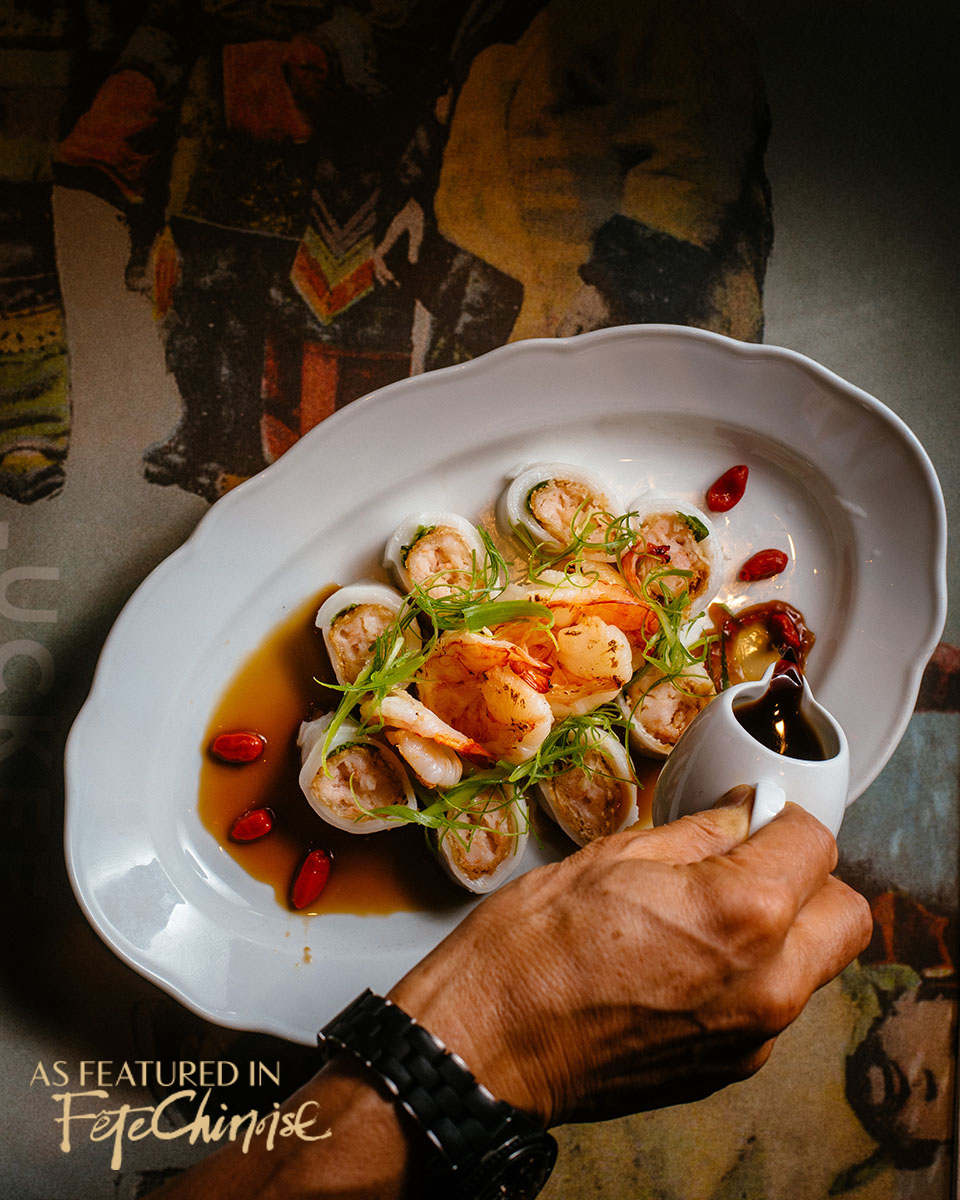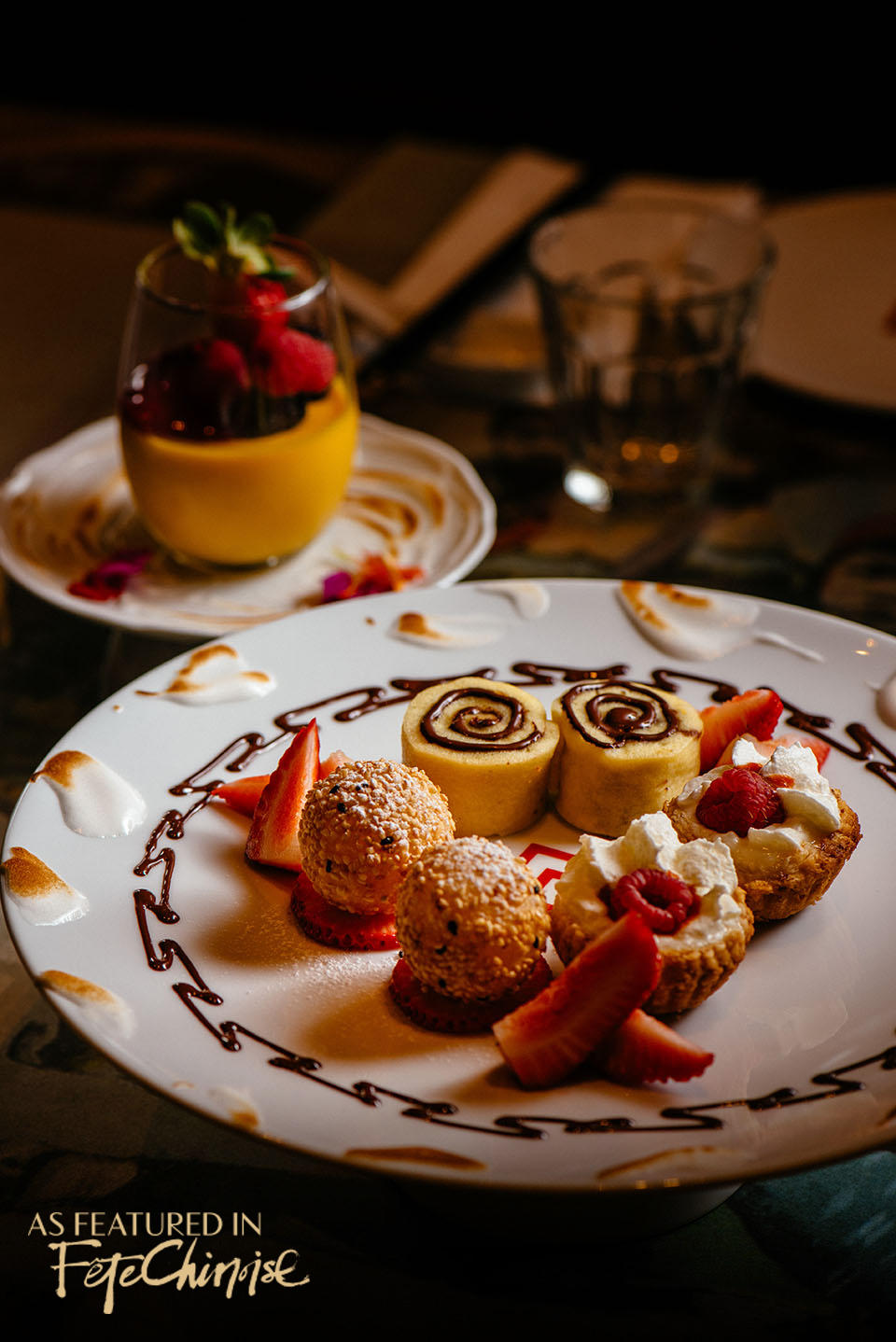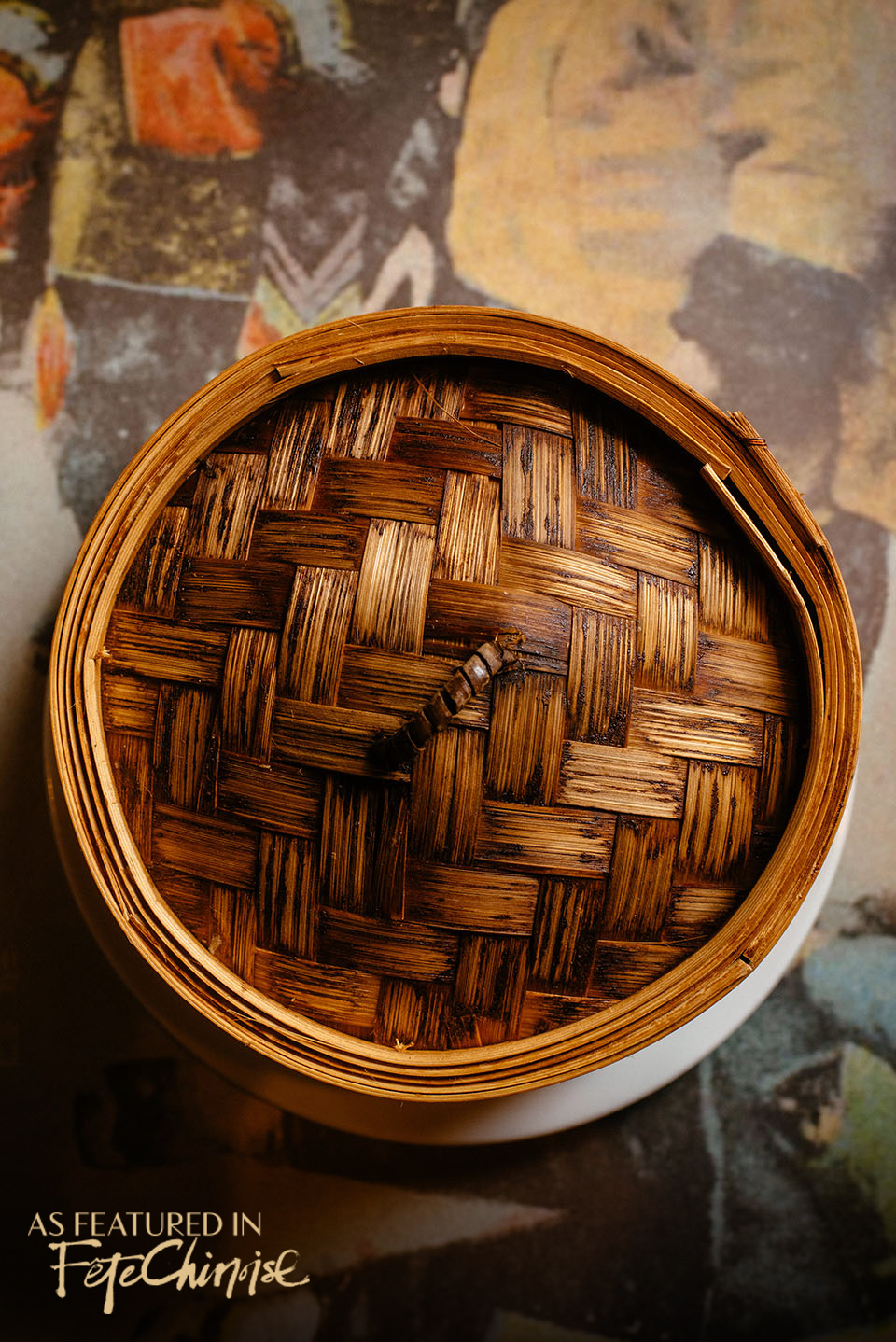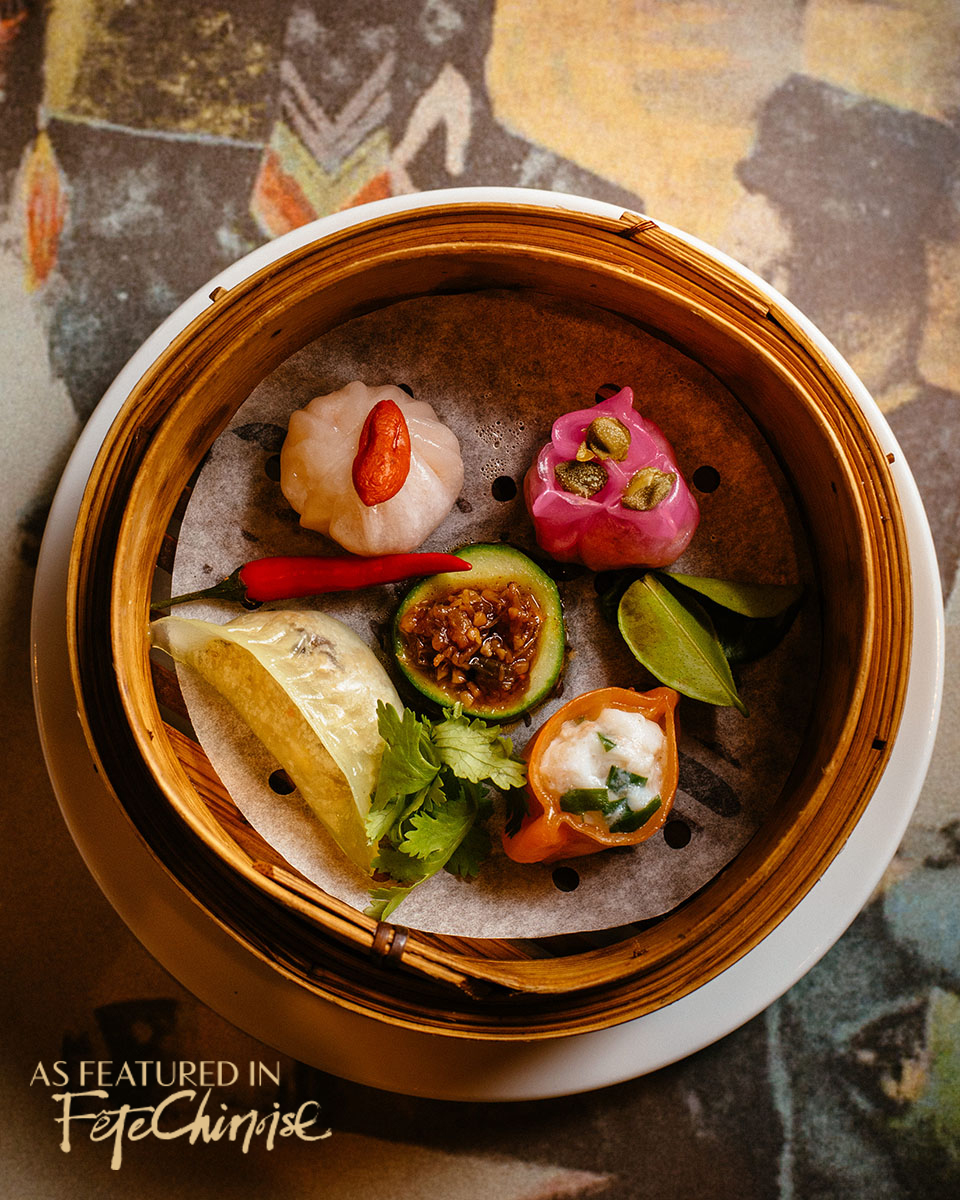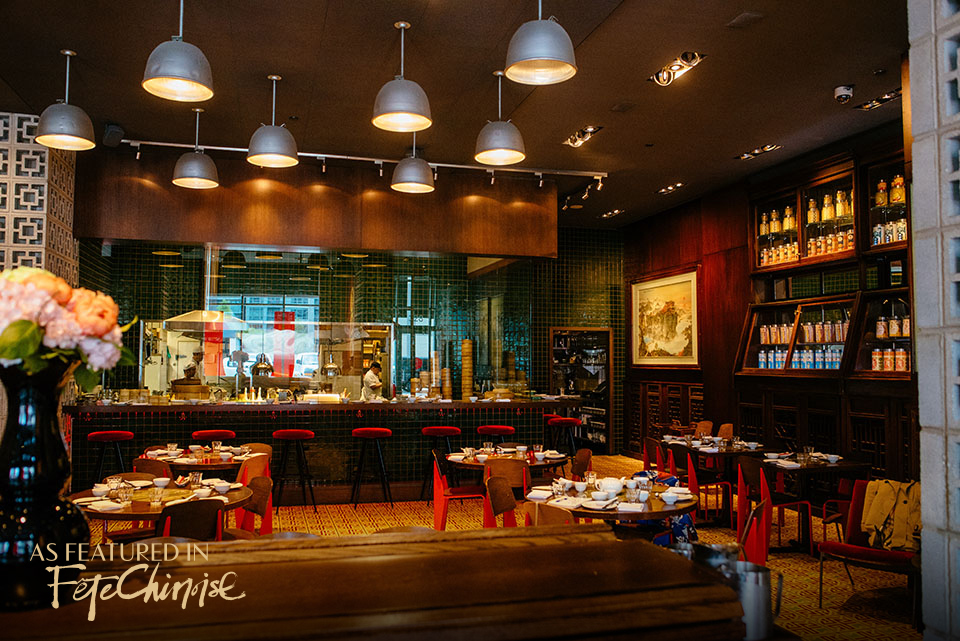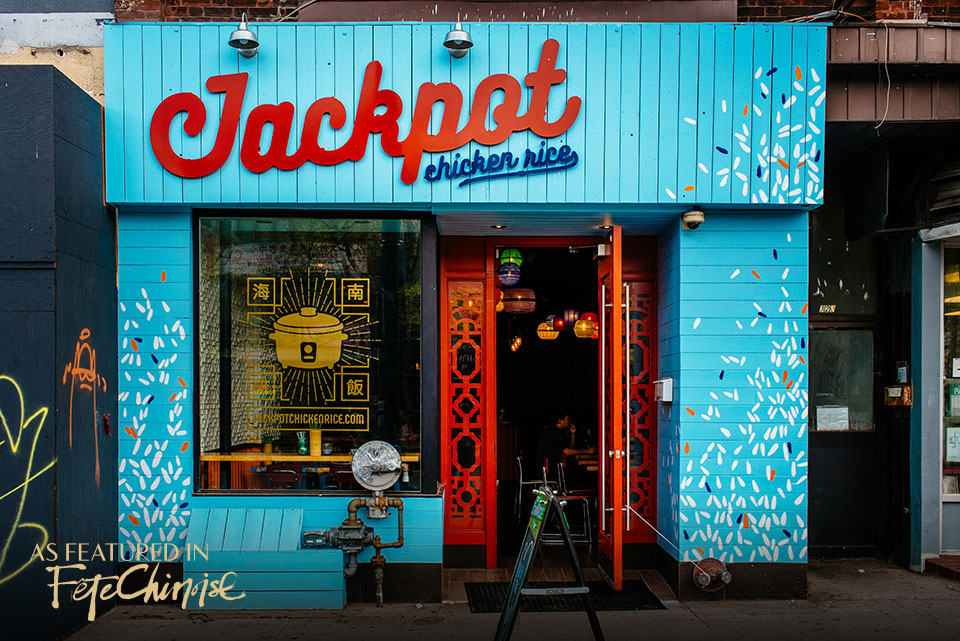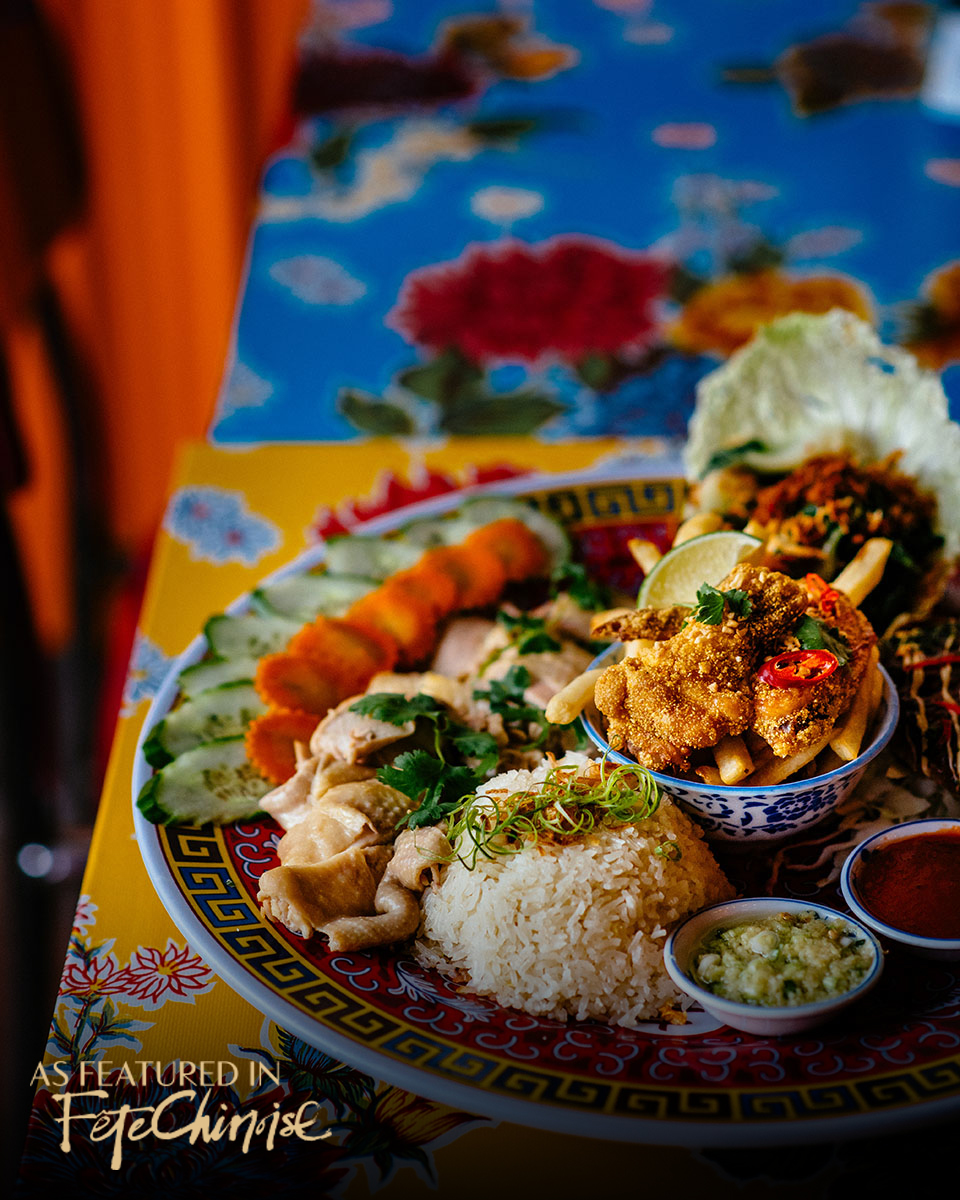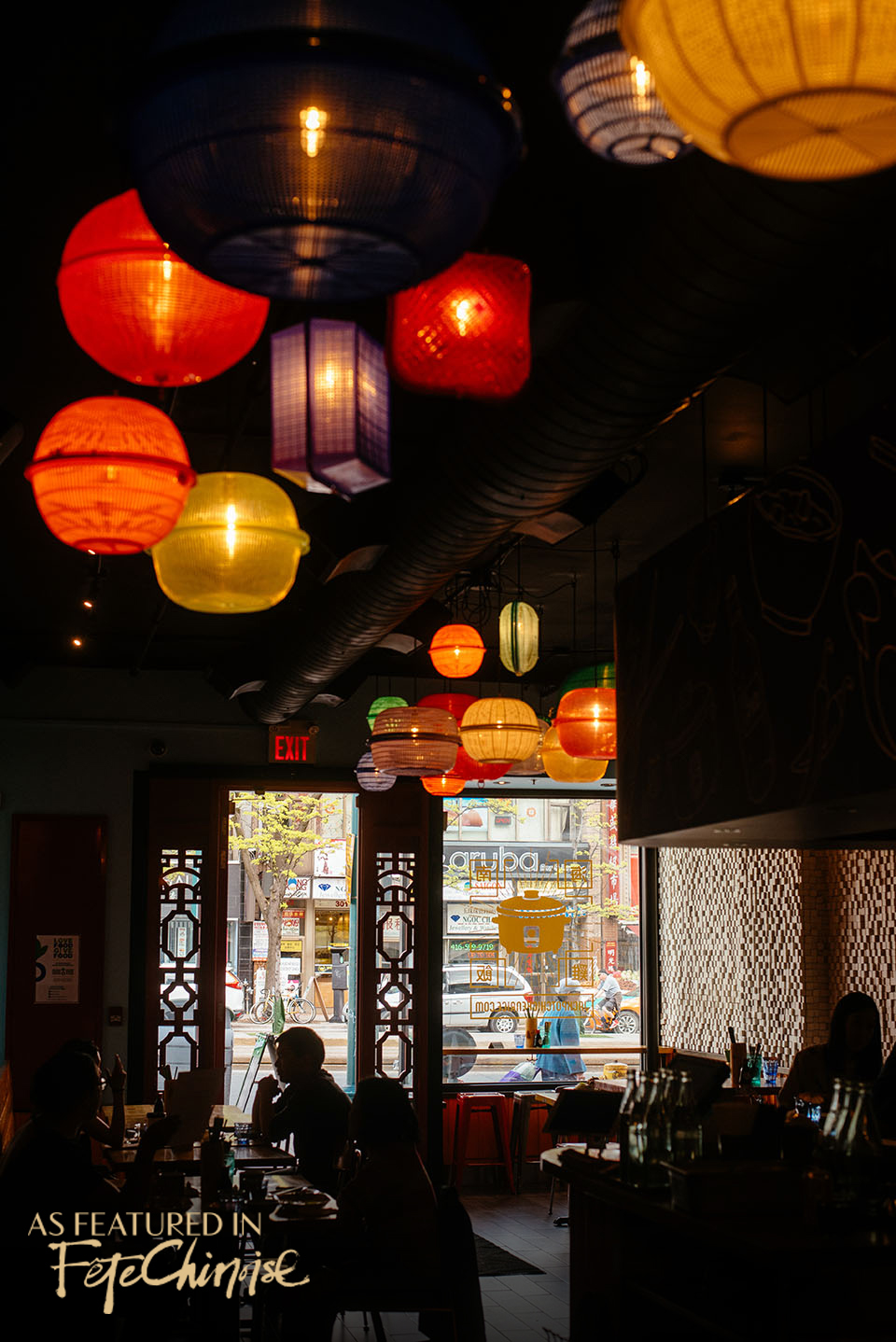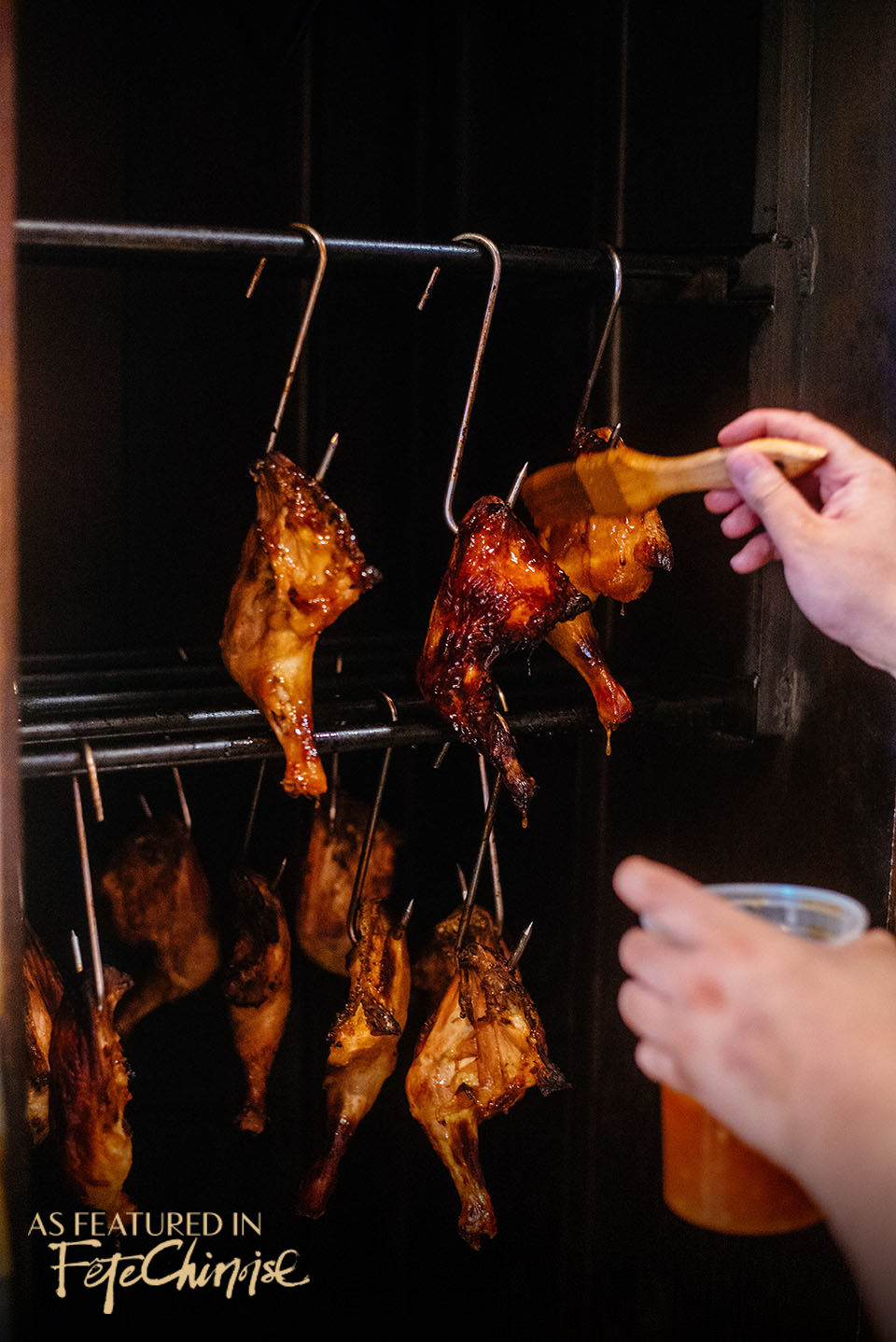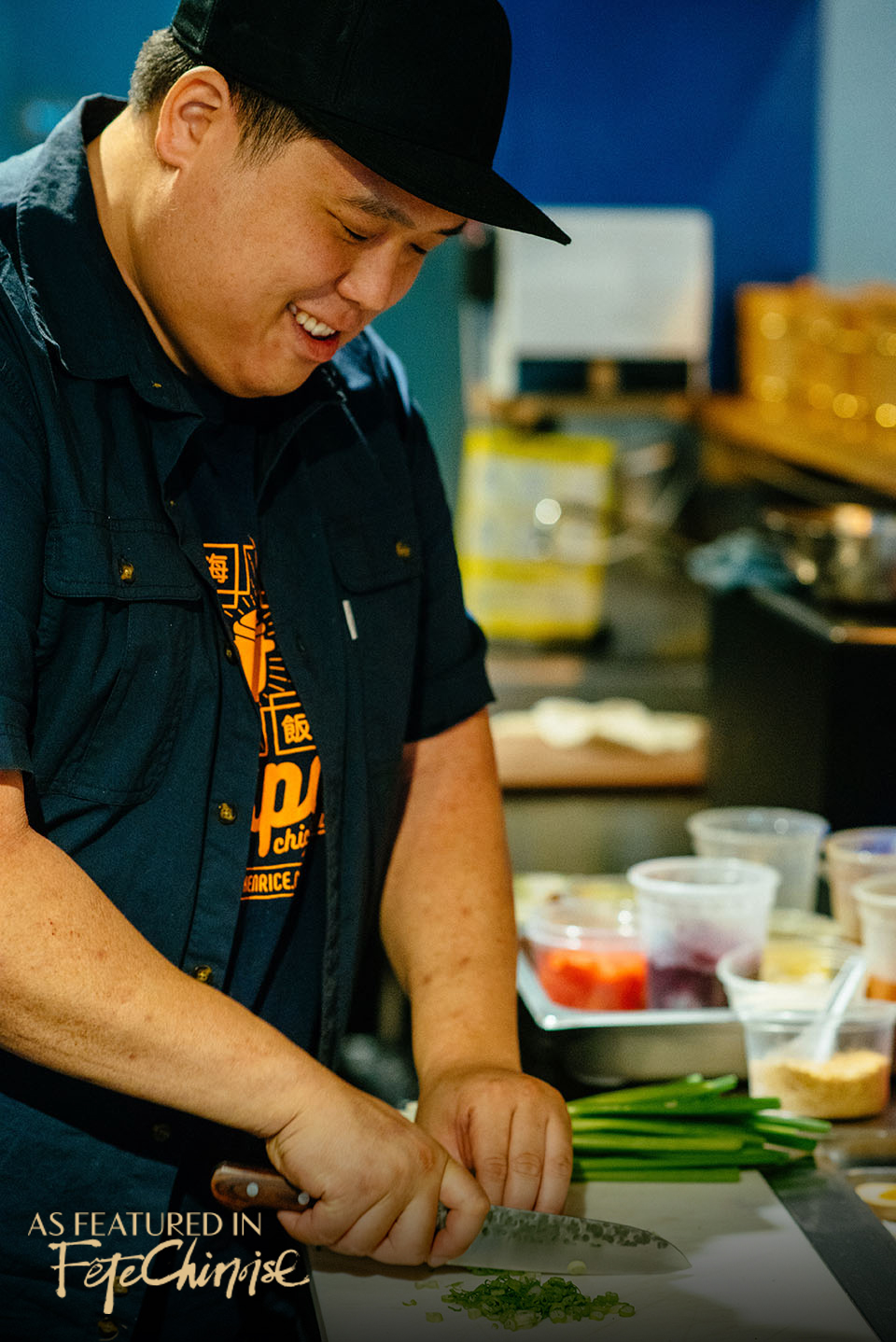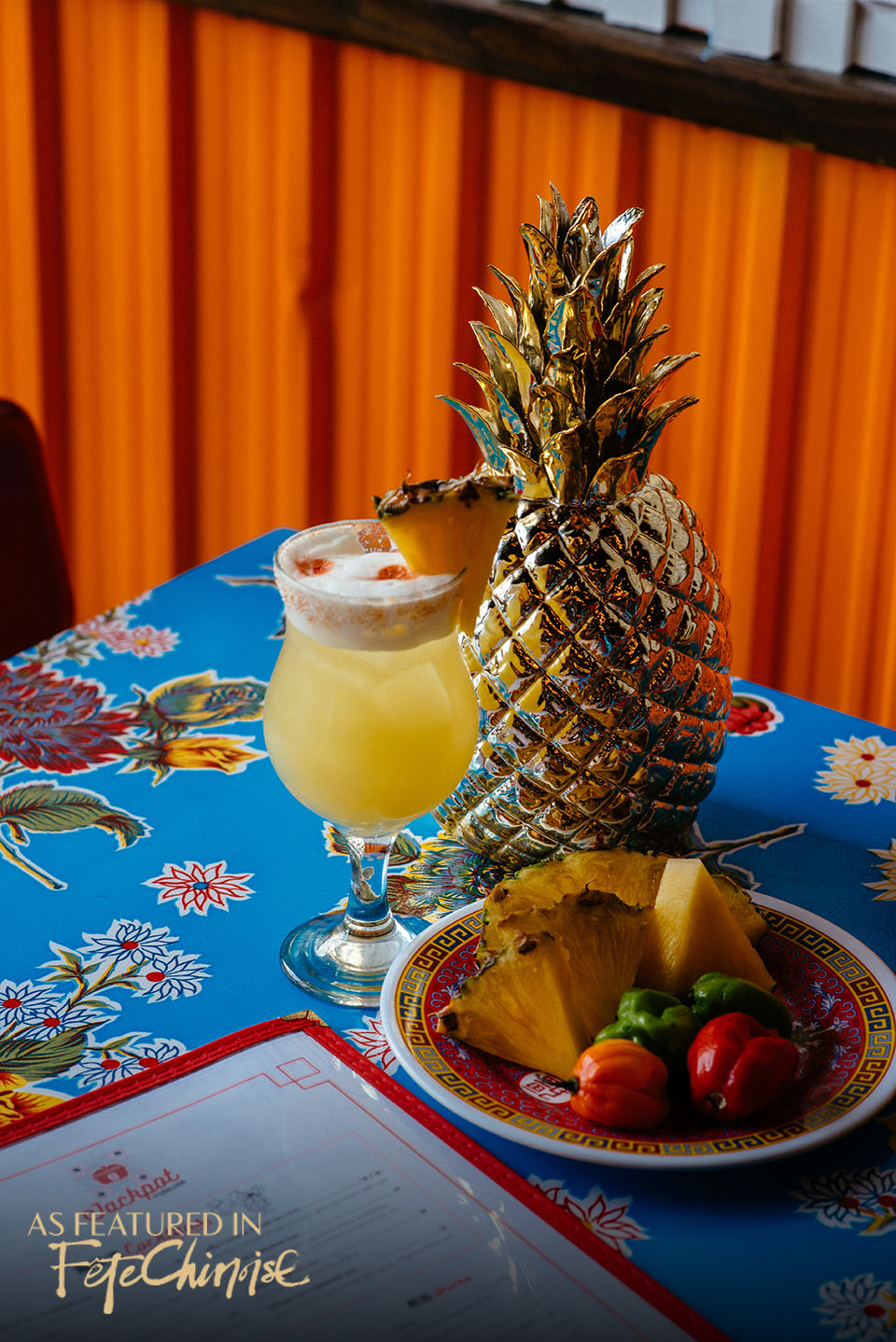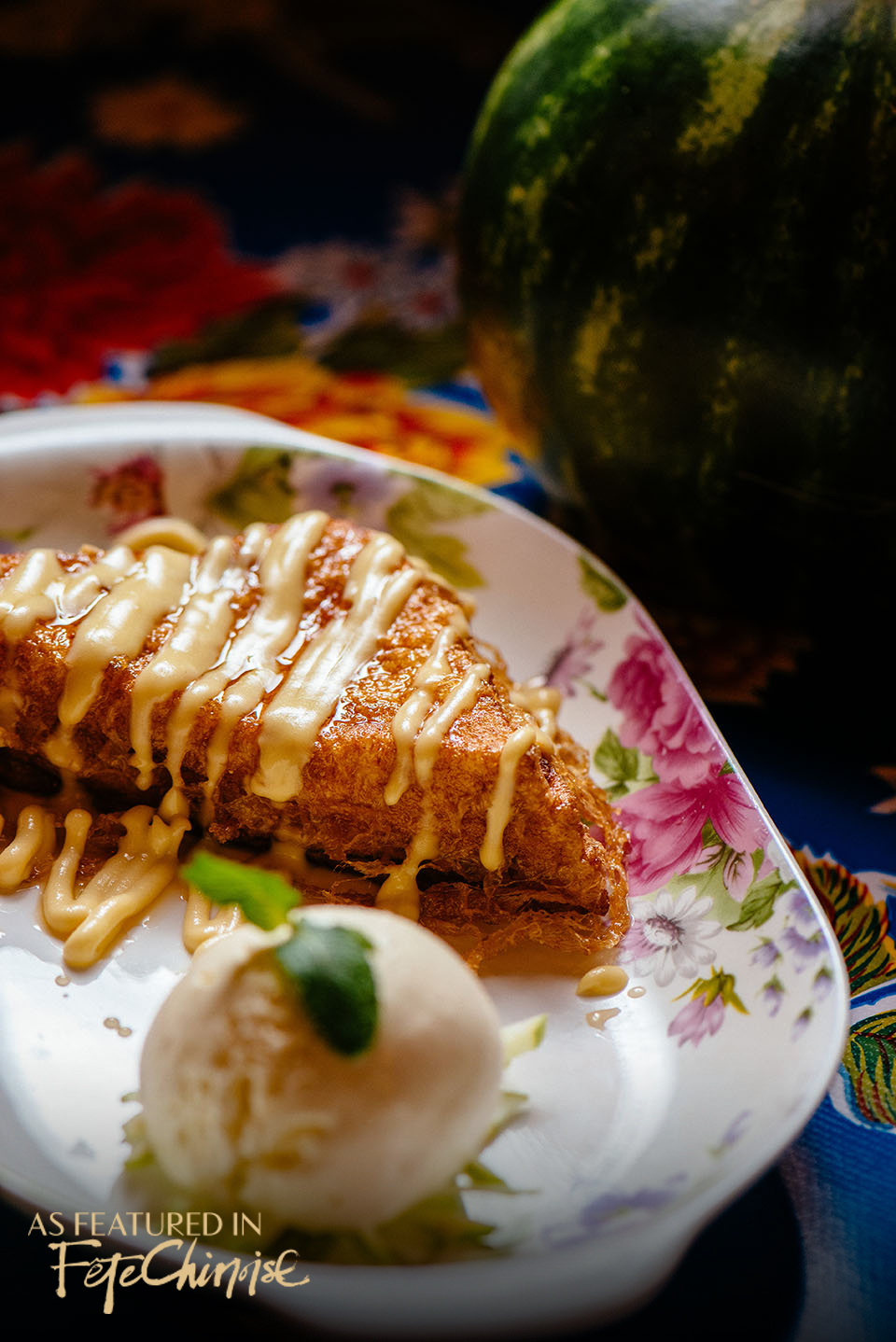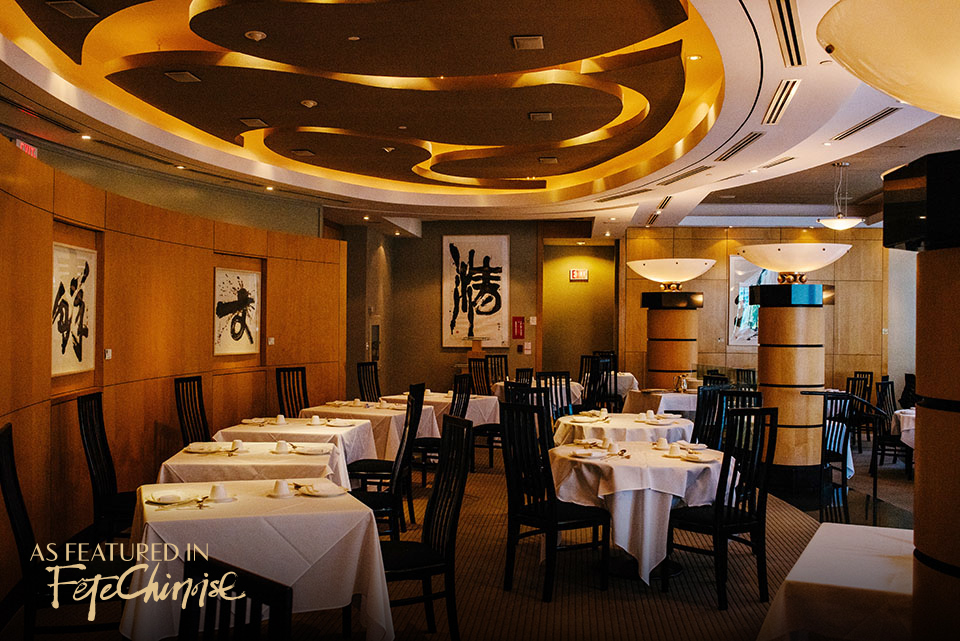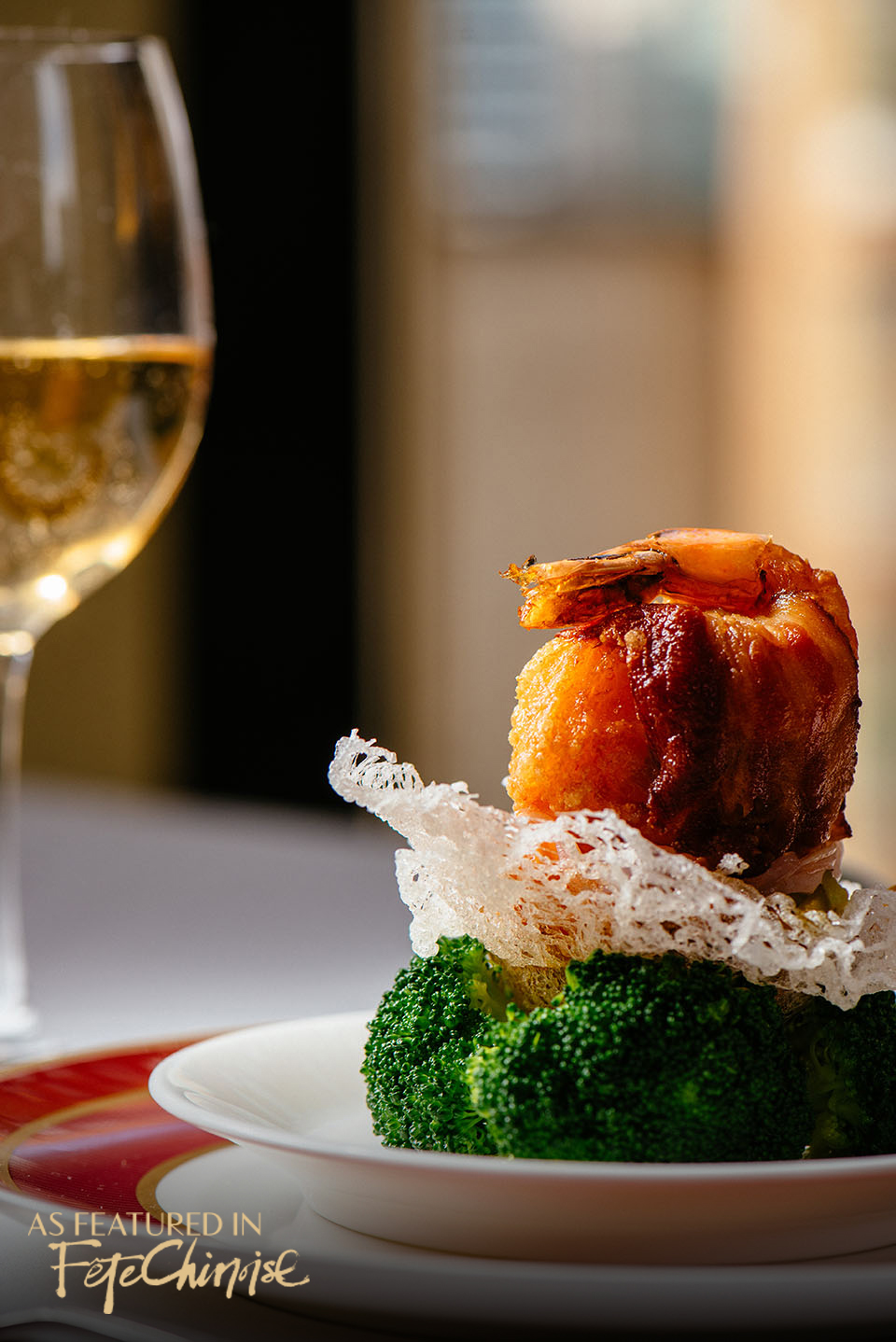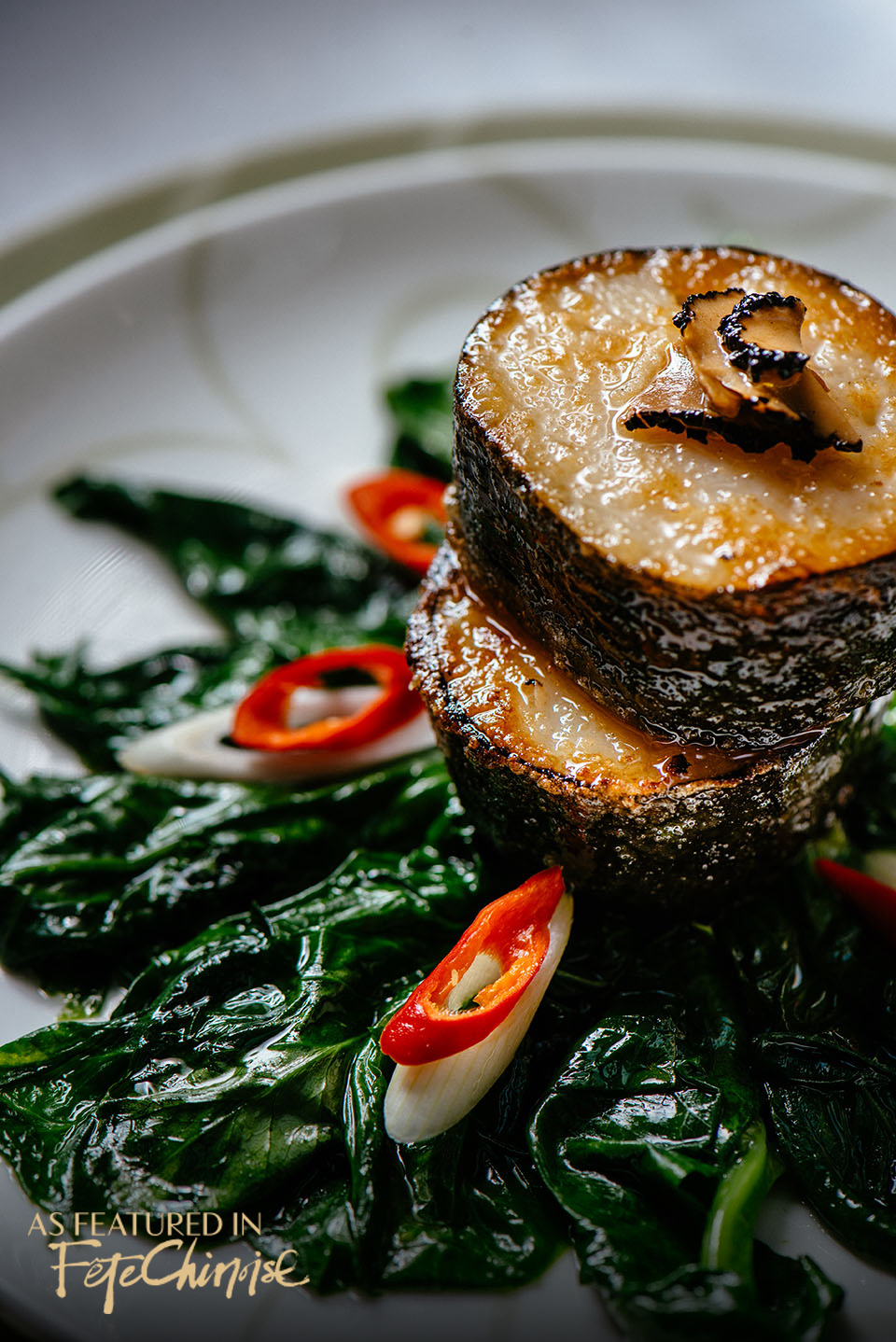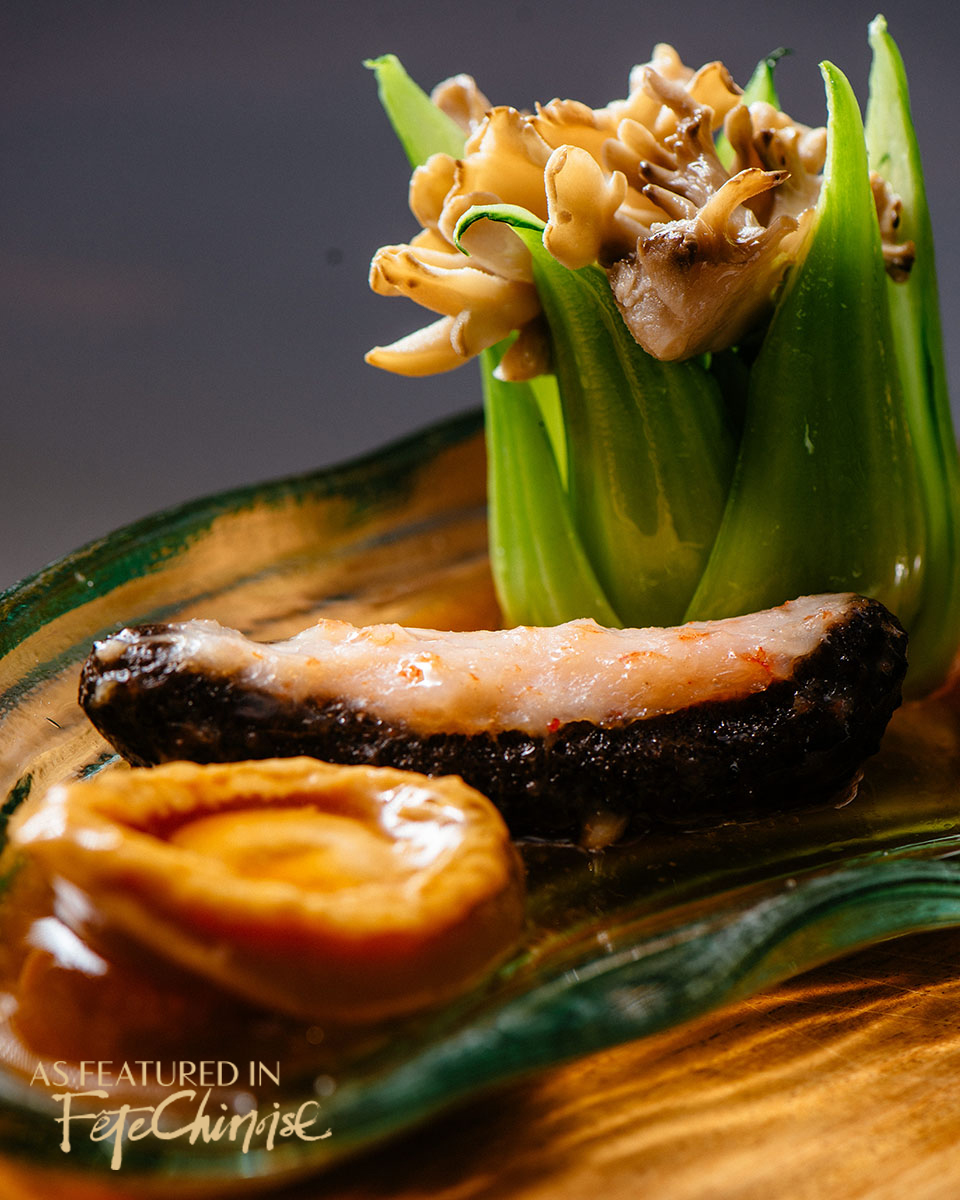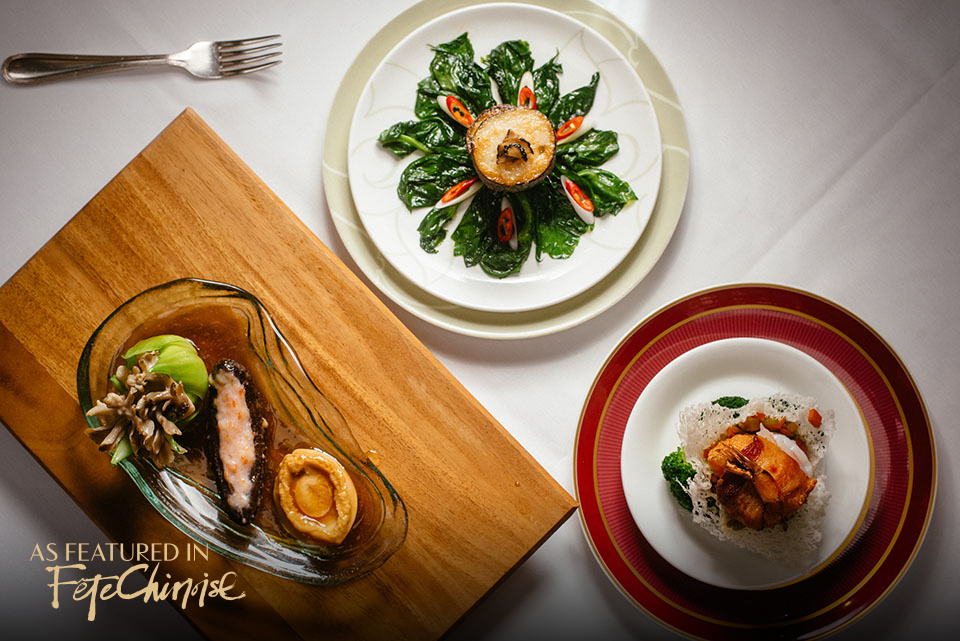Eating Lucky: Food As Fortune
Written by: the Fête Chinoise team (Jennifer Lau)
Edited by: Deborah Lau-Yu
Translated by Elaine J. Sun
Photography by Tim Chin
Food is at the centre of life’s milestone celebrations. With each meal we consume, we savour much more than taste alone. Food is an expression. Food has the power to tie in our family traditions, a parent’s love, and good friends. At an elder’s birthday banquet, the final dish that is served is usually made of e-fu noodles that symbolize longevity. Often renamed “long life noodles,” its new title represents well wishes to the elder.
Of course, this dish can be ordered on any day, but it is viewed as especially auspicious on birthdays. From special occasions to daily fare, the Chinese cuisine in Toronto is diverse, welcoming, and extremely innovative. “Luck” has been an ideology in Chinese restaurants of the last 40 to 50 years. They have notoriously branded their establishments with names that surround luck, power, and auspicious symbolism.
How does the new generation of chefs and connoisseurs embrace this cultural theme today? Chinese culture is significant and also malleable based on one’s interpretation of “luck.” Chefs and restaurant owners have freedom and creativity in making meaningful dishes for their guests. We asked three culinary stars to reflect on what luck means to them and to cook up a symbolically auspicious feast that represents their philosophies of cuisine and coincidentally, two of the three establishments have contemporary and “lucky” names!
食物通常是慶祝生活的種種里程碑的方式,所代表的也遠遠超過它們自身味道。食物是一種表達,有著連結家庭傳統,父母愛和朋友情的力量。在長輩的生日宴會上,長壽麵(或伊府麵)通常是作為象徵著大家祝福的壓軸菜餚而出場的。當然,長壽麵可以在任何一天被食用,但是它普遍在生日上被視為吉祥的代表。從特殊場合到日常餐飲,多倫多作為過去40至50年中國餐飲的意識形態,餐廳的命名屢次圍繞著福氣,財富和吉祥的象徵,與“運氣”息息相關。作為新一代的廚師和美食家們在現今該如何剖析與領會這個文化主題呢?基於對“運氣”不同的理解,中國文化是意義深厚的但同時也是可塑的。廚師和餐廳老闆可以自由的按照自己的創意來為客人提供有價值的佳餚。我們請教了三位烹飪大廚“運氣”對於他們而言意味著什麼,並請他們烹調出體現他們烹飪哲學並象徵著吉祥的美食,恰巧三間餐廳中有兩家擁有與“幸運”相關的名字。
Chef Susur lee
Chef Susur Lee of Luckee and LEE restaurants — Toronto’s celebrated gems — emphasizes how food is a living phenomenon and is inherently a kind of good fortune. He explains that food not only provides physical sustenance, it carries deeper meaning being shared amongst friends and family. Chinese culture has always valued the gathering of people to share in a feast, true for commoners or ancient imperial families. Food is integral to bringing communities together. While Chef Lee does not believe in “luck,” he defines “fortune” as family, health, and effort.
Recalling how his mother cooked for him as a child and his ability to create delicious and nutritious dishes, Chef Lee feels very fortunate to be able to have these experiences. In turn, he translates the rich experiences into his decadent menus. He prefers the idea of “fortune” over notions of “luck,” because fortune can be built through hard work and shared with others.
Chef Lee brings new meaning to regional Chinese dishes that combine different flavours and techniques. His restaurants feature ingredients uniquely from Northern, Eastern, Western, and Southern China. His goal is to bring these exciting intense flavours — such as the saltiness of Tianjin cuisine or spiciness of Sichuan cuisine — to Toronto and harmonize them with local palates. Using fresh local ingredients, Chef Lee enjoys his rendition of a common Cantonese dish: sweet and sour pork is named Golden Sand at Luckee. Gold represents prosperity and wealth; an array of spices including sesame seeds, chili, pepper, and garlic are used to cook the crispy squid, which accompanies the pork. Peking duck from Northern China is transformed with a Cantonese-style of roasting from the south. Titled “Luckee Duck,” the dish joins the two regions together gastronomically, representative of Lee’s philosophy of food as being alive in its fusion identity and in its consumption. Luckee Duck is eaten with your hands, a fun activity and brings out the communal nature of eating together, reinforcing the idea that partaking a good meal together is much like sharing one’s fortune with others.
Luckee 和LEE 餐廳的主廚Susur Lee –多倫多著名的瑰寶–強調食物是一種生活體現,本質上便是一種幸運。他解釋說食物不僅為人們的身體提供了營養,並通過與朋友家人之間的分享而具有更深刻的意義。不論是就普通人還是皇族而言,對筵席與團聚的強調和重視一直深深紮根於中國文化之中。食物是將社區聚集在一起而不可缺少重要部分。回想起孩童時代母親為他而做的飯,李主廚感到十分幸運,因為而後他會豐富的經驗轉化為精美的菜單,使他能夠創造出美味而營養的菜餚。比起“運氣”他更喜歡“財富”這個概念,因為財富可以通過努力而得,也可以與別人分享。李主廚為不同的地方菜系帶來新意,導入新穎的口味與技巧。他的餐廳提供來自北部,東部,西部和華南地區的獨有的原材料。他的目標是將天津美食的鹹味或四川美食的辛辣味,等等令人興奮的濃厚風味領進多倫多,並與當地的口味相協調融合。在Luckee 李主廚利用新鮮的本地食材,在傳統粵菜之上翻新了咕咾肉的做法將其命名為“黃金沙粒”。黃金代表著繁榮與財富。他用了一系列香料,包括芝麻,辣椒,胡椒和大蒜,來煮熟脆皮魷魚用於配搭豬肉。來自中國北方的北京烤鴨也重新用南方的烹飪手藝轉變為了粵菜風味。命名為"Luckee Duck", 這道菜從美食角度上連結了兩個地區,代表了李主廚的食物哲學:食物是有生命的。Luckee Duck 是用手食用的,是一個可以帶出聚餐的美好的有趣活動。同時可以鞏固與他人共食的重要性,並且加強和他分享幸福的想法。
Modern Jamaican-Chinese Cuisine
A newer chef to the modern Chinese food scene, Craig Wong is the owner and chef at Patois and Jackpot Chicken Rice. He has a distinct voice in the Chinese food community with Jamaican-Chinese roots, a Scarborough upbringing, and professional cooking experience in France. Exposed to cuisines from Hong Kong, Chiuchow (Chaozhou), Hakka, and Sichuan cultures as well as Italian, Japanese, and Korean fare from being raised in Canada, Craig has found his niche. Sharing food with those you love is a fortunate event — it is personal and inviting. When naming his new restaurant “Jackpot Chicken Rice,” Craig considered the huge role of rice in communal dining and the notion of a rice pot.
作為Patois 和Jackpot Chicken Rice 的老闆兼廚師Craig Wong 是現代中國美食盛會的新貴。牙買加海外華人的背景,士嘉堡區長大,以及法國的專業烹飪經驗賦予了他在中華美食界獨特的聲音。儘管長於加拿大,Craig 不僅僅受到了香港,潮州,客家和四川文化的影響他還受到了意大利,日本和韓國特色的熏陶。而如此多元化的環境之下Craig 找到了他的歸所與目標:與你愛的人分享食物是一個幸運的事件—它是親密和接納的。當命名他的新餐廳“Jackpot Chicken Rice”(頭獎雞肉飯)時,Craig 考慮到了米飯在共餐中的重要性,以大米為重點,“jackpot”(頭獎)似乎與分享稻米的意義相當。朋友和家人聚在一起享用食物對他與多數廚師而言都極具意義,分享即是關懷,Craig 以他寬厚的胸膛和慷慨的精神鼓舞著人們。
With the focus on the rice, “jackpot” seemed to work well with the meaning of sharing behind the rice pot. The coming together of friends and family over food is especially important to him, and a shared significance amongst chefs. Sharing is caring, and Craig has a big heart for people with his generous spirit.
Like Chef Lee, Craig does not believe in serendipitous luck and humbly shares that, “The harder I work, the luckier I get.” Using new and fun ideas, Craig’s signature Jackpot Chicken Rice is a delicious deviation from the traditional Hainanese chicken rice. Placing emphasis on the work required to make the rice flavourful, Craig learned to be resourceful from his maternal grandmother when she would cook for large dinners with Jamaican and Chinese ingredients. The heart of his work goes back to happiness and harmony within the family. To Craig, sharing these sentiments with people who step into Jackpot is the most important.
與李主廚一樣Craig 也不相信偶然間的運氣,並謙虛地說:“我越努力,就越幸運”。通過新穎並有趣的方針,Craig 的代表作“Jackpot Chicken Rice”(頭獎雞肉飯)是一個偏離傳統海南雞肉飯的新美味。通過他的外婆Craig 學到了用牙買加和中國食材烹製大型晚餐的要領,並極其強調米飯美味鮮香的重要性。對Craig 而言他工作的動力與核心是家庭的幸福與和諧,而與食客們分享這份祥和則是極其最重要的。
Lai Wah Heen
Just a few blocks down, a well-known upscale restaurant, Lai Wah Heen (麗華軒) refines traditional Southern Chinese dishes. Opened in 1995, Lai Wah Heen hosts beautiful banquets and is the go-to for many clients with traditional taste. Focusing on Cantonese cuisine, owner Canson Tsang believes that food reflects history and geography. That is the reason why seafood is a staple in Cantonese cuisine, given Guangzhou’s position by the water. Lai Wah Heen reincorporates scallops into their wedding menu — a traditionally popular ingredient because the Chinese characters for scallops (帶子daai zi or daizi) is homonymous with “having or bringing forth children,” in Chinese. Representing blessings to the newlyweds to expand their new family, Lai Wah Heen’s Truffle Scallop Cake adds a modern twist to the dish using truffle oil and other finishing touches while keeping the scallop as the star of the show for its auspicious reputation in Chinese culture. Canson expresses his hope to continue the dialogue of innovating Chinese cuisine with traditional auspicious elements.
過幾條街道坐落著一個提供精緻傳統的南方菜餚的高檔餐廳,麗華軒(Lai Wah Heen)。麗華軒開幕於1995年,經常用於舉辦美麗的宴會,並作為許多口味傳統的客戶的首要之選。老闆Canson Tsang 專注於粵菜並認為食物反映著歷史和地理。這就是為什麼廣州所在的位置,臨海,決定了海鮮是粵菜的特色。扇貝是一個傳統中十分受歡迎的原料因為它可以被稱為“帶子,”其寓意著對新生命的期許,而麗華軒也十分恰當的將扇貝融入到了他們的婚禮菜單中。麗華軒的松露扇貝蛋糕雖然使用松露油和其它精美的點綴來增添了現代風格,但仍以中華文化中吉兆的帶子作為主力軍,這道菜成為代表了其對新婚夫妻早生貴子的祝福。Canson 表示他希望繼續加深中國傳統吉祥元素與創新菜餚之間的交流。
At the core, Toronto’s modern Chinese cuisine illustrates an abundance of good fortune and life, rooted on Canadian principles of generosity and embracing the cultural heritage of others. The fact that we have rich stories that can be expressed with food is a blessing. Making use of Toronto’s local markets and internationally-sourced ingredients, the Chinese diasporic culinary community have recreated traditional dishes and the chefs have not forgotten about the weight and potential of auspicious meanings behind their menus, allowing them to renew culture everyday with gastronomical creations. While serving dishes with “lucky” connotations and new puns, there are no superstitious practices and beliefs that things come easy. Every day is hard work and every morning a small milestone. The chefs embrace a shared concept of “fortune” — that one of the simplest ways to share our fortune is to gather together for a meal.
多倫多現代中國菜餚的核心闡述了生活的美好與財富,而這源於加拿大對其它文化寬宏的包容力及對共存的重要性的信念。我們可以通過食物來表達豐富的故事本身便是一種賜福。華僑廚師們並沒有忘記傳統美食的吉祥意義及潛力,在基於多倫多的當地市場和進口原料之上,廚師們可以在慣例菜餚的基礎上加以創新和突破。儘管人們利用與“幸運”相關的內容和雙關語作為食物名字,他們並沒有迷信的認為這種舉動會使任何事變得容易達成。每天都會是辛苦的工作而每天早上也都會是一個小小的成就。廚師們信奉著一個共同的理念,“財富”,而分享財富最簡單的方法之一便是聚在一起吃飯。

